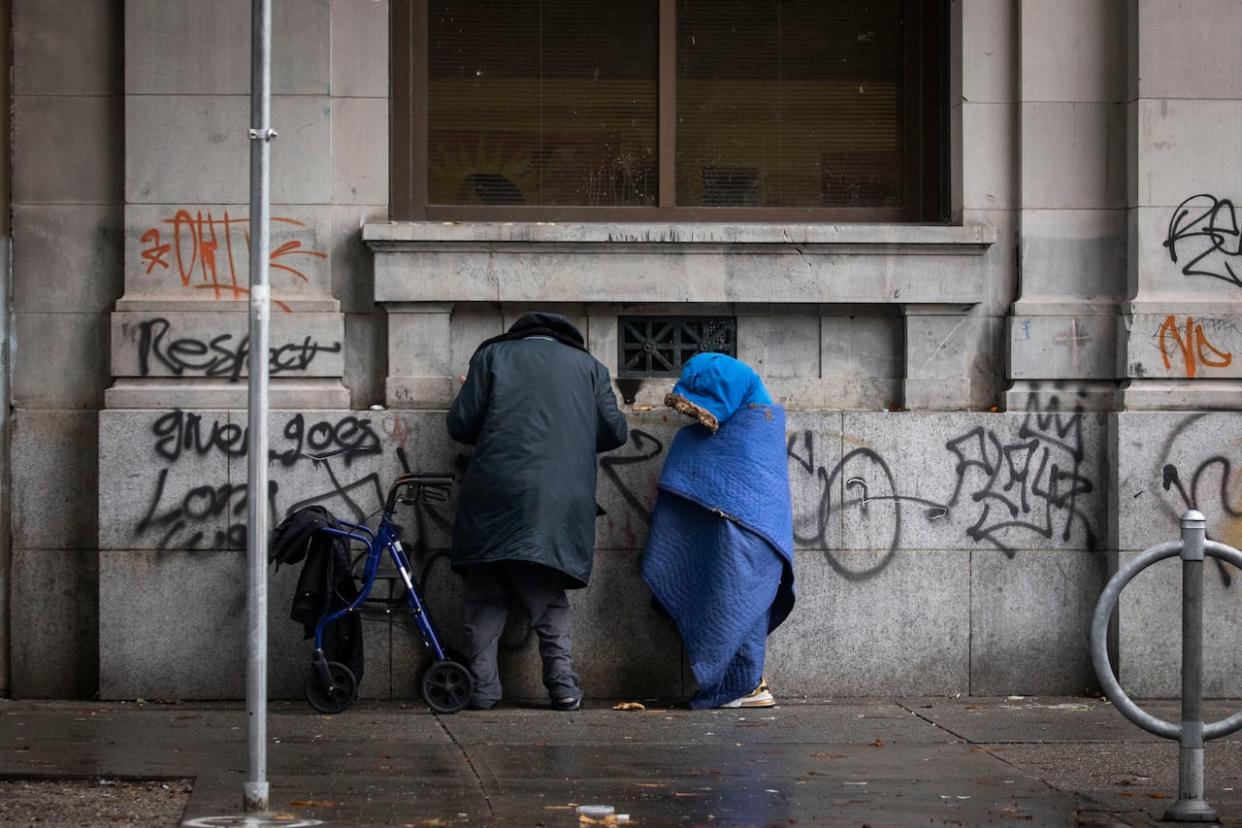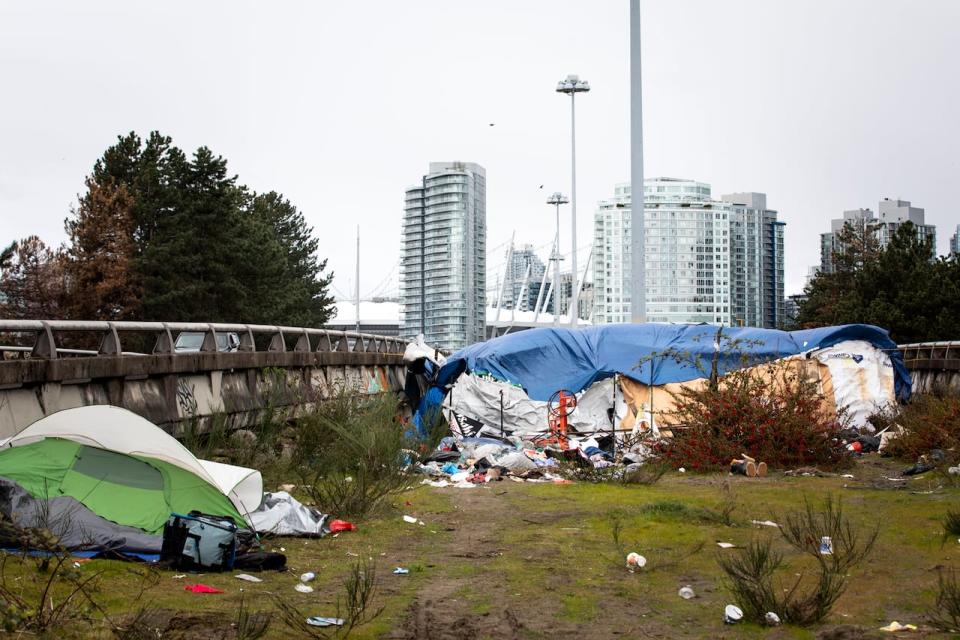Vancouver-area homeless numbers show sharpest spike between counts since survey began

The number of homeless people in Vancouver and its suburbs has risen substantially since the COVID-19 pandemic began, according to new data released Thursday.
The report, conducted by the Homelessness Services Association of B.C., found 4,821 people identified as homeless in the area this year compared to 3,634 in 2020. It's a 32 per cent increase over three years and, according to the association, the highest spike between consecutive counts since reporting began in 2005.
The annual report was cancelled in 2021 and 2022 due to the pandemic.
"It's important to remember that every number represents a person who lives without housing," said Lorraine Copas, chair of the community advisory board that co-ordinates Reaching Home federal funding in Greater Vancouver, in a written statement.

Homeless camps set up between the viaducts leading in and out of downtown Vancouver, pictured on April 18. (Justine Boulin/CBC)
Reaching Home is a community-based program aimed at preventing and reducing homelessness across Canada.
"We know there are many individuals experiencing hidden homelessness, including youth, seniors, Indigenous and racialized persons, and members of the 2SLGBTQIA+ community, and we know that many individuals in these communities are also under-represented in these counts," said Copas.
The count was conducted by a team of more than 1,000 volunteers who visited shelters, transition houses, safe houses, hospitals and jail holding cells between March 7 and 8.
It took place in the communities of Burnaby, Coquitlam, Delta, Langley, New Westminster, North Vancouver, Port Coquitlam, Port Moody, Richmond, Ridge Meadows, Surrey, Vancouver, West Vancouver and White Rock.
Of those surveyed, 64 per cent of people were sheltered, while 30 per cent were not and were making do outside, at someone else's home or in a tent or vehicle.
In every community, the number of people experiencing homelessness had increased in the last three years.
Data shows Delta, Richmond and the Tri-Cities had the sharpest spikes, with count-over-count increases of 159 per cent, 91 per cent and 86 per cent respectively.
When asked why they had lost access to housing, the most common reason cited by respondents was lack of income (35 per cent), followed by substance use issues (24 per cent) and mental health issues (16 per cent).
"Mental health and substance use issues are treatable medical conditions," said Stephen D'Souza, executive director of the Homelessness Services Association of B.C., in a statement.
"However, these health needs are often unmet in people who are at risk of housing loss, and can also prevent a return to housing."
Despite lack of income being the No. 1 reason for lack of housing, 91 per cent of respondents said they had at least one stream of income and 38 per cent said they had two or more.
David Wells, chair of the Indigenous Homelessness Steering Committee of Reaching Home in Greater Vancouver, said this is the first time volunteers also asked respondents about the impact of colonial policies on their current housing situation.
They found 64 per cent of Indigenous-identifying respondents had either lived in, or had intergenerational experience of residential schools.
"This year, the count made inroads into bringing recognition to the ongoing impact of colonial policies that continue to cause incredible harm to Indigenous people," said Wells.
Thirty-three percent of survey respondents identified as Indigenous, compared with two per cent of the census population.
Other key findings show that the majority of people surveyed (69 per cent) had been unhoused for more than a year, compared to 45 per cent in 2020. Fifteen per cent of people said they had lost their homes as a result of the pandemic.
The count is an initiative of the Reaching Home Community Entity, which is funded by the federal government; Lu'ma Native Housing Society; and the Community Advisory Board, responsible for the Reaching Home program in Greater Vancouver.


